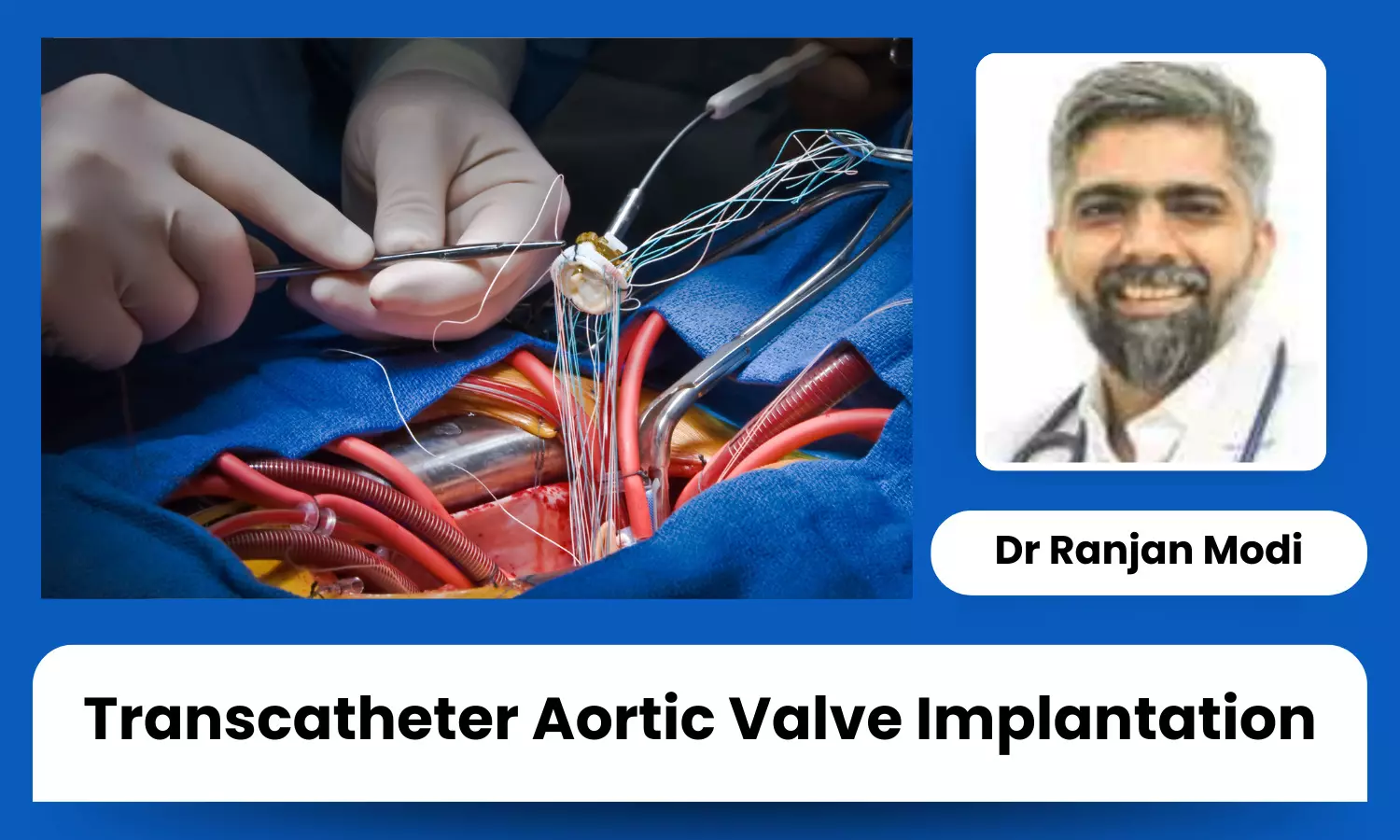Transcatheter Aortic Valve Implantation (TAVI) and Its Impact on Heart Health - Dr Ranjan Modi

Transcatheter Aortic Valve Implantation (TAVI) is a medical procedure used to treat aortic stenosis, a condition where the aortic valve in the heart narrows and makes it hard for blood to flow. This can lead to symptoms like shortness of breath, chest pain, and dizziness.
Instead of traditional open-heart surgery, which can be risky for some patients, TAVI offers a less invasive option. During the procedure, doctors use a thin tube called a catheter, usually inserted through a large blood vessel in the groin or a small cut in the chest, to place a new valve in the heart. The new valve is made from animal tissue, often from a cow or pig, and is designed to fit over the old valve.
The procedure is typically done under local anaesthesia with sedation, meaning patients are awake but relaxed. It usually takes a few hours, and patients are monitored closely afterward. Most can expect to stay in the hospital for a few days to recover.
TAVI is particularly beneficial for older patients or those with other health issues who may not tolerate open-heart surgery well. While it carries some risks, many patients experience improved heart function and a better quality of life after the procedure.
What is Aortic Stenosis?
Aortic stenosis happens when the aortic valve, which controls blood flow from the heart to the aorta, becomes narrowed due to calcium build-up. This narrowing makes it harder for the heart to pump blood through the smaller opening, leading to symptoms like shortness of breath, chest pain, dizziness, and fatigue. Without treatment, severe aortic stenosis can result in heart failure and even death.
How TAVI Works?
In the past, severe aortic stenosis was treated with open-heart surgery, which required a large chest incision to replace the damaged valve. This method, while effective, involved significant risks and a long recovery time. TAVI changes this by offering a less invasive solution.
Transcatheter Aortic Valve Implantation (TAVI) is a procedure used to treat aortic stenosis, where the aortic valve in the heart narrows, making it difficult for blood to flow.
During TAVI, a new valve is inserted through a catheter, which is a thin tube usually placed through a small incision in the groin or chest. Doctors use advanced imaging techniques to guide the catheter to the heart.
Once it reaches the aortic valve, the new valve is positioned and expanded within the old valve, effectively replacing it without the need for major surgery. This minimally invasive approach avoids large cuts, reduces trauma to the body, and allows for a quicker recovery time compared to traditional open-heart surgery.
TAVI is particularly beneficial for patients who are at high risk for complications from conventional surgery, such as the elderly or those with other health issues. The new valve, typically made from animal tissue, begins to work immediately after placement, helping to improve blood flow and alleviate symptoms related to aortic stenosis.
Benefits of TAVI
TAVI offers several advantages over traditional open-heart surgery:
1. Minimally Invasive: The procedure uses small incisions, resulting in less pain, reduced infection risk, and fewer complications.
2. Faster Recovery: Patients usually recover quicker, have shorter hospital stays, and return to normal activities sooner, which is especially beneficial for elderly patients or those with other health conditions.
3. Reduced Risk: TAVI is particularly advantageous for patients considered high-risk for open-heart surgery due to age, frailty, or other medical issues. The procedure’s minimal impact on the body lowers overall risk and stress.
4. Repeat Replacement of Aortic Valve: If an aortic valve that was previously implanted during an open-heart surgery starts to malfunction, it can be replaced through TAVI (Transcatheter Aortic Valve Implantation). This procedure allows for valve replacement without the need to open the chest or undergo another open-heart surgery.
Patient Experience
In a medical intervention, a patient from Congo has successfully undergone a minimally invasive procedure to address severe aortic stenosis, a life-threatening condition. The patient, named Roger, had been experiencing breathing difficulties for the past six months to a year, with a significant worsening of symptoms in the last 1.5 months. After the procedure, he experienced significant improvements in symptoms, such as better breathing and less chest pain, allowing him to resume daily activities quickly and comfortably.
Another patient who had open-heart surgery to replace the aortic valve one and a half years ago developed severe aortic stenosis due to the disintegration of the implanted valve. The patient underwent TAVR procedure, where a new transcatheter valve was implanted over the old surgical valve. The procedure went smoothly, and the patient was discharged comfortably within four days. Follow-up visits with the patient have shown excellent recovery.
Future Developments
The field of TAVI is continuously evolving, with ongoing research and technological advancements aimed at improving the procedure. Innovations in valve design, catheter technology, and imaging techniques are expected to improve the effectiveness and safety of TAVI further.
TAVI represents a significant advancement in cardiac care, providing a less invasive, effective alternative to traditional open-heart surgery for patients with severe aortic stenosis. It helps in significant symptom relief, faster recovery times, and reduced risks, making it a valuable option for heart patients.
If you or a loved one are experiencing symptoms of aortic stenosis, consulting with a healthcare provider about treatment options, including TAVI, can be a crucial step towards improved health and quality of life.


